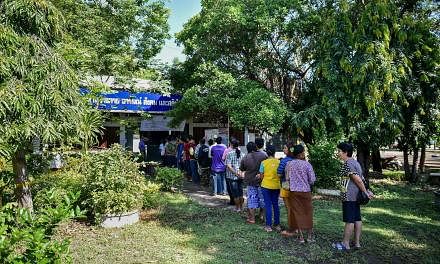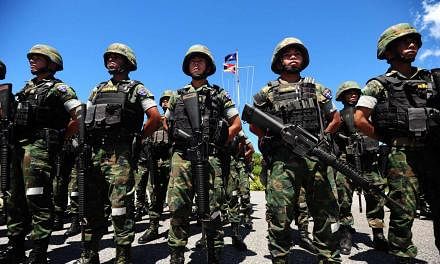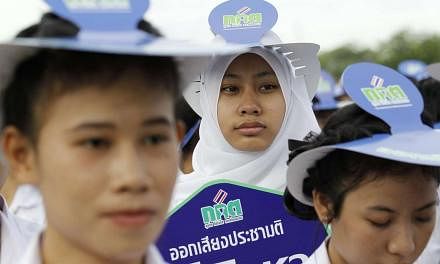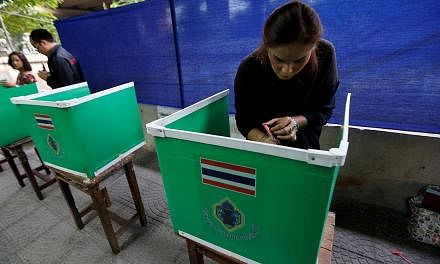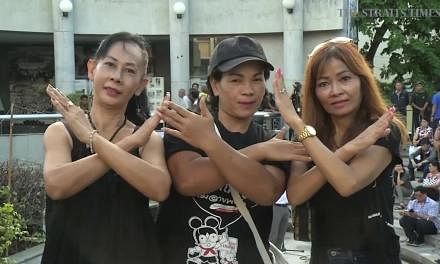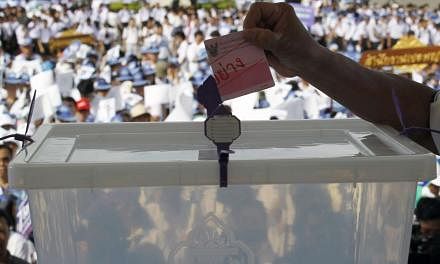BANGKOK (REUTERS) - A draft military-backed constitution in Thailand won the approval of 61.35 per cent of those who voted in a referendum on the weekend, the Election Commission said on Wednesday (Aug 10) as it released final results of the vote.
The results confirmed a convincing win for Prime Minister Prayuth Chan-ocha in Sunday's referendum, the biggest test of public opinion since he, as army chief, seized power in a 2014 coup.
The draft was rejected by 38.65 per cent of voters, the commission said, adding that turnout was just over 59 per cent.
Seeking to allay concern, his military government might delay plans for a return to democracy, General Prayuth said on Tuesday a general election would be held in 2017.
The United States and European Union have called for a quick return to democracy, calling on the authorities to lift restrictions on freedom of expression that have been in place since the coup.
The government said the Constitution will promote stable, clean government.
But politicians from both sides of the divide and rights groups were united in opposition to the draft, which includes clauses for a fully appointed Senate that would be picked by the junta, with seats reserved for chiefs of the armed forces.
Other provisions would make it difficult for a single party to win a majority in the 500-member lower house, likely meaning weak coalitions, and allowing the appointed Senate to play a critical role in Parliament.
Human Rights Watch said the Constitution facilitated "unaccountable military power". "Instead of the long-promised return to democratic civilian rule, the new constitution facilitates unaccountable military power and a deepening dictatorship," said Mr Brad Adams, the group's Asia director.
A second referendum question on whether the Senate should be allowed to elect a prime minister with the lower house won the approval of 58.07 per cent of voters, with 41.93 per cent against.
The charter is due to be enacted by November.
Few countries have had more Constitutions, with 19 in the 84 years since it became a constitutional monarchy.
Some analysts say the vote reflected a desire for stability after more than a decade of political division in South-east Asia's second-biggest economy, including several rounds of violent demonstrations and two military takeovers.
Criticism of the charter was banned before the vote and the authorities detained dozens for trying to campaign against it.
Members of the anti-junta opposition said they accepted the referendum result and would bide their time until the election when, if a party they back were to take power, they could try to overturn the Constitution.

